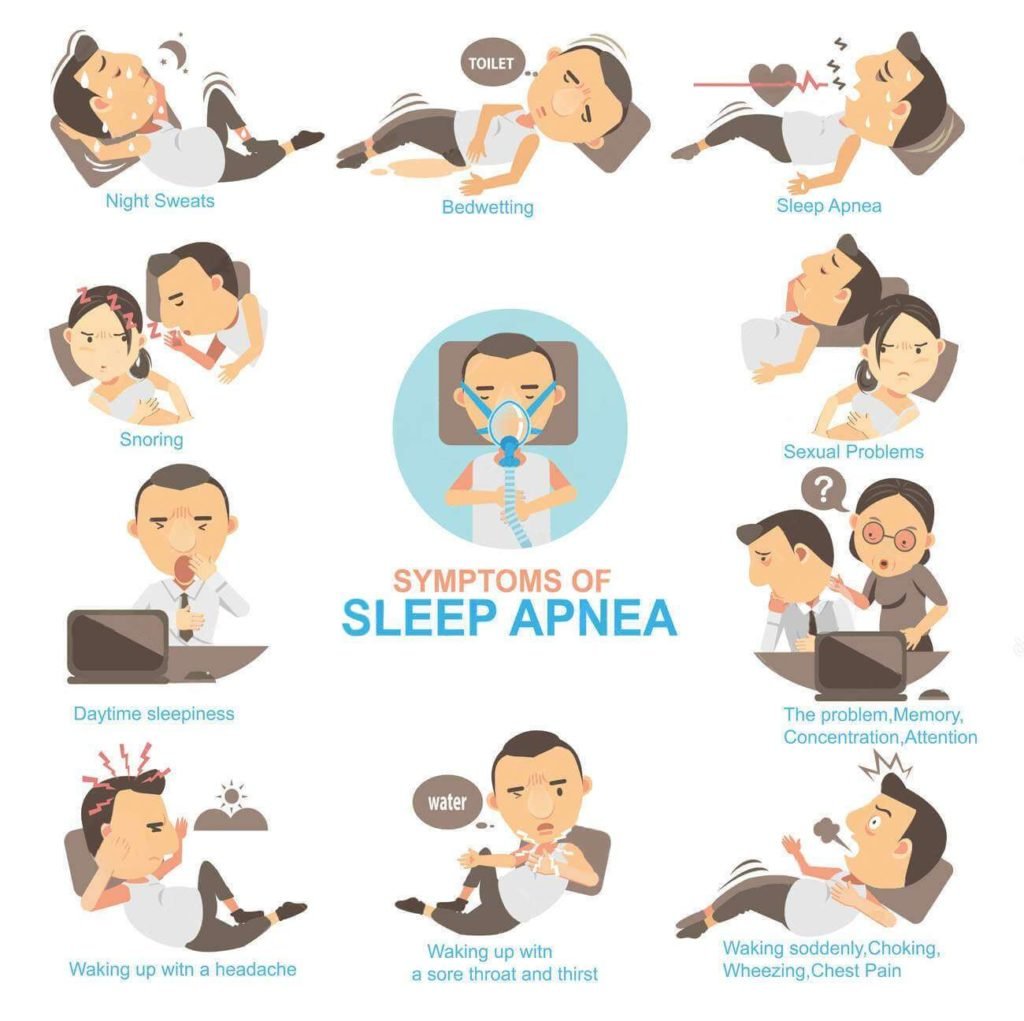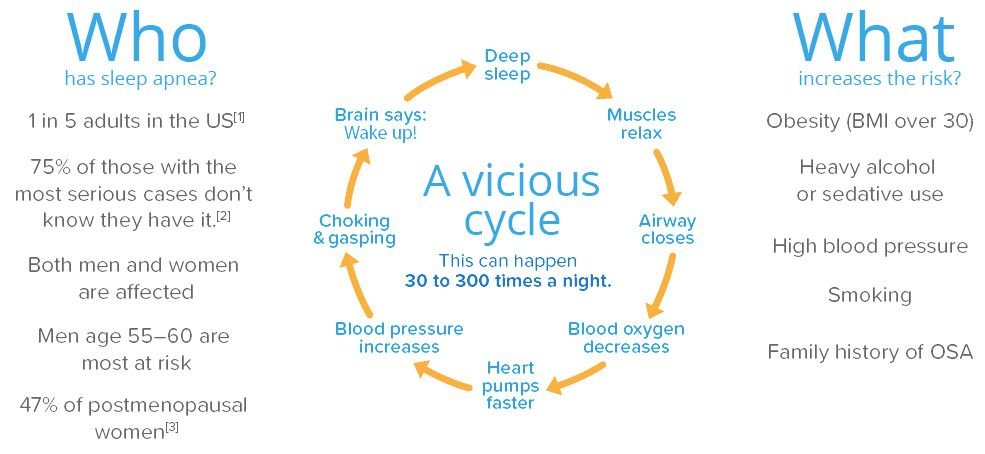Sleep Apnea – Signs, symptoms and causes
Sleep apnea is a common but serious disorder that affects millions of people. According to Statistics Canada, approximately a recorded 15 % of men and 5% of women suffer from sleep apnea but as much as 80% of people with the condition remain undiagnosed. Sleep Apnea is not just about snoring and not getting enough rest at night, it can actually severely impact your health and quality of life.
There are three main types of sleep apnea. The most common type is Obstructive sleep apnea, which occurs when throat muscles relax. Central sleep apnea takes place when your brain doesn’t send proper signals to the muscles that control your breathing and Complex sleep apnea syndrome is a combination of both obstructive sleep apnea and central sleep apnea.
Obstructive sleep apnea (OSA) is an anatomical problem of the upper airway. As your throat muscles relax, they close up the airway causing you stop breathing for up to ten seconds during sleep and this can sometimes happen hundreds of times during one night. These intermittent disturbances during sleep prevent air from reaching your lungs, therefore placing significant strain on your cardiovascular system and your heart.
Signs & Symptoms
While most of us don’t realize that snoring can be a sign of a potentially dangerous condition, it is a common symptom of sleep apnea. Other symptoms can include breathing pauses and/or choking noises during sleep, waking up with a dry mouth or sore throat, insomnia or sleep deprivation and morning headaches.
Be sure to talk to your health care practitioner if you experience loud snoring, especially if it is punctuated by periods of silence, if shortness of breath and gasping for air or choking awakens you from sleep, and also if you experience excessive daytime drowsiness or hypersomnia.
Dangers of Sleep Apnea
There are many reasons why you should not ignore OSA symptoms as disruption to your sleep cycle can dramatically impact your energy, mental performance, and long term health. In some cases, if left untreated, sleep apnea can be fatal. While short term effects of OSA can range from fatigue, grogginess, headaches, memory and cognitive impairment as well as anxiety and stressed relationships. The long term effects can lead to serious health conditions such as diabetes, heart disease, stroke, obesity, depression and in some case even death.



